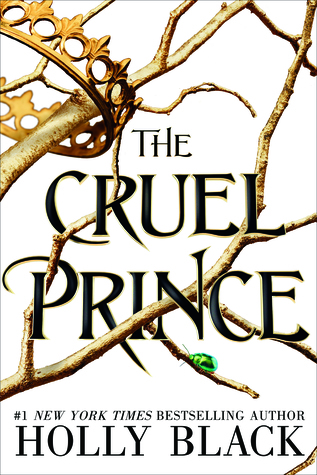
For nearly the first half of this book, I thought there had been a Singular Logic and Plotting Fail, and I was grumbling to myself as I read. "Why is the protagonist still there? Why is she putting up with this nonsense? Is this some sort of weird Faerie Stockholm Syndrome, or what?"
But as the story, and more importantly, the characterization, continued to unfold, it dawned on me why, indeed. At the turning point of the book, I realized how carefully the author had planned her story. Given what happened and what was revealed, there was nowhere else the story could have gone, and my opinion of it did a 180-degree turnaround.
That, my friends, is some master class writing.
This is a dark, bloody tale from the get-go, with a Faerie that is the furthest thing from warm and fuzzy, or Tinkerbell-cute and treacly. These Fae, for the most part, are beautiful, charming, cruel, murderous sociopaths, and the author pulls no punches with them. None of the characters are likable, including the protagonist, but they are damned compelling, and not in a train-wreck sort of way, either. I suppose this book could be likened to a Faerie version of The Sopranos. We may think Tony is a monster...but we can't keep our eyes off him.
The book opens with a scene that sets the tone for the entire story: three young girls on a typical suburban morning, eating fish sticks and ketchup and watching TV while their parents work in the house. The doorbell rings and our protagonist, seven-year-old Jude, gets up to answer it. There is a man with greenish skin, pointed ears, and a long black coat she has never seen before, and his eyes are the same as her older sister Vivienne, vertical cat slits. The mother comes to the door, and the dialogue that follows establishes that Jude's mother was this person's (not a human) wife; and years ago, while pregnant with Vivi, she faked her death and fled. The situation escalates quickly, and the stranger kills the childrens' parents and kidnaps all three children to Faerieland.
Ten years later, our story opens with a grown-up Jude and her twin sister Taryn, living with Vivienne and her father, the redcap Fae Madoc, who is general to the King of Faerie. Madoc's position means the girls are given the same privileges as children of the Gentry, even though they are resented and persecuted (bullying is too mild a term for what Jude and her sister are subjected to--the torment borders on sadistic). Jude is concentrating on surviving and trying to earn some sort of place for herself at court.
All well and good. At least until I learned that Jude and her sister are not locked into Faerieland (or Elfhame, as it is called here); Vivi crosses back and forth between Elfhame and the "mortal world" fairly often, even taking Jude and Taryn on visits to the mall. When I read that, it about wrenched me out of the story. I thought, what the hell? Why are Jude and Taryn, or at least Jude, still in the land of Faerie, after being kidnapped and living with their parents' murderer? But I kept reading, and the reason soon became clear: Ten years of living in Faerieland has made Jude almost as ruthless, scheming and murderous as the redcap who raised her. There is no way she would be able to fit into the human world.
This is what I mean when I say the characters are not likable. The body count is high, and the manipulating and backstabbing is epic. The elder brother of Cardan, the titular "Cruel Prince," assassinates nearly his entire family in his attempt to gain the throne, and Cardan, who is introduced to us by way of his torment of Jude and Taryn, is no prize himself. But the author has cleverly cast her characters to draw the reader in regardless, and given them just enough whiffs of a peculiar and twisted kind of "honor" to keep us from turning away in disgust. In the end, Jude plays her game to its end and puts Cardan on the throne, and ends up becoming the shadow-ruler of Elfhame behind him.
The book ends there, as the epitome of the phrase, "Be careful what you wish for, because you just might get it." This story is as cruel as its characters, and we will definitely not receive any kind of happy ending. But the writing is powerful, and I will be reading the sequel.

No comments:
Post a Comment